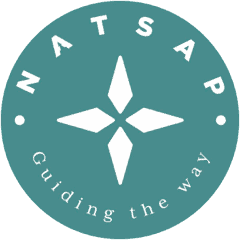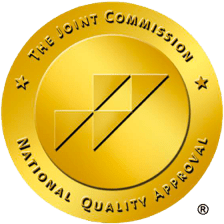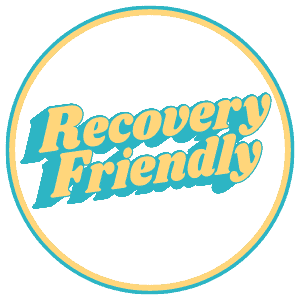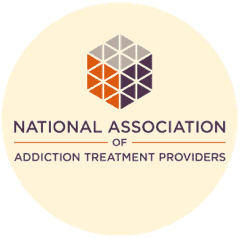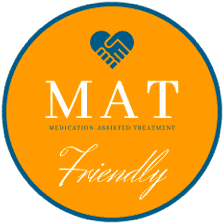Heroin addiction is a lifelong condition that should not be faced alone. Escaping addiction is not simple. Despite your best efforts, addiction will always overpower you until you accept that your challenges are bigger than drug use.
In this article, we’ll discuss heroin addiction and what to expect in addiction treatment.
As we unpack addiction to heroin, we will answer common questions such as:
- What is heroin?
- What defines a heroin addiction?
- What are the signs of heroin use?
- What are the symptoms of heroin addiction?
- Why do heroin users relapse even if they’ve recovered?
- How does someone develop an addiction to heroin?
- What are some common effects of heroin addiction?
- How is heroin addiction treated?
What is Heroin?
Heroin is an opioid drug that is derived from opium poppy seeds. It is often combined with morphine and other drugs and is extremely addictive. When used, heroin binds to the opioid receptors in the brain that control pain and pleasant feelings. The more often you use heroin, the higher dosage you will need to feel the same effects as when you first began. This can result in serious side effects and a heroin overdose.
What is Heroin Addiction?
Heroin addiction is a chronic dependency on the opium-based drug. It stems from a complex interplay between the biological need for the drug and pre-existing health issues. Working through this lifelong condition will require therapy and other proven recovery methods.
Heroin is rightfully labeled as highly addictive. Many prescription opioid users become addicted and escalate to the cheaper, stronger option of heroin use. Without guidance, you might find yourself lost in how to break free of this painful vice.
Understanding heroin addiction in the context of clinical treatment can help.
Signs of Heroin Use
Signs of heroin use can include:
- Physical: dry mouth, nausea, reduced heart rate, and breathing, “heavy” limbs
- Mental: brain fog, pivoting between alert and drowsy, depression
- Behavior: sudden disinterest, hostility, avoidant, paranoia
- Social: lying, being alone more often, struggles in relationships
Additional signs of heroin use can include:
- Owning paraphernalia like hypodermic needles, metal spoons, or glass pipes
- Needle injection scars, known as “tracks”
- Irregular sleep patterns
- Abnormally small pupils
- Odd or slurred speaking
- Unexpected concerns around money
- Persistent problems in work or school
- Lack of mental focus and clarity
Symptoms of a Heroin Addiction
Symptoms of a heroin addiction can include:
- Hiding your substance use from others
- Isolating
- Experiencing financial loss or property loss due to the need to fund your addiction
- Losing family relationships and romantic relationships
- Trying to quit using heroin on your own but quickly falling back into using once withdrawal symptoms begin
- Having additional mental health and physical health emergencies caused by your addiction
- Researching drug rehab centers but not going out of fear of getting sober
Symptoms of Heroin Withdrawal
Trying to quit heroin cold turkey or by yourself can result in severe withdrawal symptoms. It can also be life-threatening without the help of medical professionals. Withdrawal symptoms from heroin can include:
- Fever
- Chills
- Diarrhea
- Nausea
- Vomiting
- Headaches
- Congestion
- Muscle aches
- Muscle twitches and spasms
- High blood pressure
- Insomnia
- Elevated heart rate
- Anxiety
- Agitation
- Paranoia
- Seizures
Symptoms can last for a week or longer. By receiving monitored detox treatment from medical professionals, you’ll receive around-the-clock support to ensure you stay healthy and safe. Medications can also be prescribed to reduce the effects of withdrawal symptoms.
What is the Difference Between Heroin Addiction, Tolerance, and Dependency?
Using heroin can very quickly turn into an addiction, but you should understand that heroin use doesn’t guarantee a habit. Some one-time users might never return to the drug. Knowing the difference can help you decide if addiction care is necessary for you.
As a result of heroin abuse, users face a shift in their bodies that drives them to keep using. No person reacts the same, but addiction takes hold similarly among users.
Heroin tolerance defines the amount of the drug you’ll need to get the expected effect. Frequent heroin use drives your tolerance higher, meaning you’ll have to use more to feel the same “high.” This becomes a revolving pattern of rising tolerance.
Heroin dependency is the outcome of your heightened tolerance. Your body will now need the drug to maintain this “new normal” of biochemical levels. Continued heroin use allows you to avoid a painful, temporary “sickness” known as withdrawal.
Heroin addiction typically ties into dependency and your underlying mental state. Prolonged heroin use often provides relief from untreated traumas, stress, or other conditions. As dependency takes hold, drug use becomes a priority in your life.
Transitioning from a single recreational experience to full heroin addiction happens often. Users may not get professional attention for all the issues feeding their addiction. Without this, you may relapse even if you abstain for a long period of time.
Why Do People Become Addicted To Heroin?
To move beyond your addiction, you’ll need professional treatment and guidance. Recovering your health begins with an official enrollment into heroin addiction treatment. Many users see the first lasting change in all areas of their life once they’ve entered care. But, you still have to work hard to make lasting changes. As your first step, you’ll need to take time to understand your addiction to heroin. Conditions surrounding your heroin use play a fundamental role in your addiction.
The pleasure and relief you’ve gotten from heroin is on its own a major factor. Yet, addiction might also stem from what’s around you and what else is happening within you. Your body, emotions, thoughts, and even your social circles tie into heroin use. Generally, these addiction-causing factors can include some of the following:
- Social: Whether loved ones or people in your community use heroin, it becomes more accepted. You may be tempted to try it if it’s accessible and use is encouraged.
- Heredity: Addiction in any form has been shown to pass genetically from relatives. You might be at risk if your parents and other family members have an addiction.
- Tolerance and dependency: Biological demand for heroin is central to addiction. With enough heroin use, your body believes it cannot function without it.
- Dual pathology disorders: Medical and psychological conditions are also important pieces in addictions. Heroin can be self-medication for mental and physical pain.
- Stress and trauma coping: Grief and other issues can easily be a backdrop to heroin use. It’s abused similarly to substances like alcohol or meth to mask emotional pain.
- Abuse of other substances: Prior substance abuse can bridge into heroin use and addiction. You may even find yourself simultaneously using multiple drugs.
Each specific issue requires personalized attention to treat. Relapse is far more difficult to avoid until each of your conditions has been identified. These components are all spotted as part of a proper heroin addiction diagnosis.
Long Term Effects of Heroin Addiction
Heroin drug addiction, like any lifelong illness, begins by harming your immediate health. In time, you’ll jeopardize your job, relationships, and the safety of others around you.
Common long term effects can include:
- Infections at sites of heroin injection
- Blot clots
- Significant loss of weight
- Skin picking scabs
- Loss of menstrual cycle, known as amenorrhea
However, untreated heroin addiction has been known to inevitably lead to:
- Permanent brain damage
- Liver and kidney disease
- Financial struggle
- HIV/AIDS, Hepatitis C, Hepatitis B
- Circulatory problems
- Miscarriage
- Overdose and death
Even if you have experienced some of these, you can limit further damage by starting addiction treatment.
What Treatment is Available for Heroin Addiction?
At Next Step Recovery, we offer several effective treatment options to help you overcome your heroin addiction:
Medical Detox
Medical detoxification gives your body time to clear toxic substances out. In the process, you’re kept safe under the supervision of trained medical staff. You might also receive medications to make withdrawal easier to endure.
Intensive Outpatient Programs
Intensive Outpatient Programs, also known as IOPs, allow clients to live at home and attend treatment multiple days per week, typically around 15 to 20 hours per week.
Dual Diagnosis Treatment
Dual diagnosis works to address any co-occurring mental health disorders, including anxiety, depression, PTSD, eating disorders, and many others. This type of treatment is a crucial part of addiction recovery.
Clinical Therapy
Clinical therapy unpacks the thoughts, beliefs, and behaviors that enable your addiction. Treatments like dialectical behavioral therapy move you to a healthier lifestyle for sobriety. Cognitive Behavior Therapy (CBT) is also a highly-effective therapy used in our treatment programs.
Support Groups
Addiction support groups unite you with peers that share your experiences. 12 step groups like Narcotics Anonymous (NA) exist to motivate you and hold you accountable in sobriety.
Continuum of Addiction Care
Heroin addiction care plans work to constantly support you, even in sobriety. Addiction treatment gives you the skills and direction to cope with your condition, which you’ll need access to throughout your life.
Our Continuum of Addiction Care (CoC) keeps you connected to a care program every step of the way. With no gaps in care, you’ll have a more reliable path to recovery.
Your addiction care might include some of these services or many others not listed here (including adventure therapy). They each are meant to prepare you for a lifelong commitment to sobriety.
What to Know Before Starting Heroin Addiction Care
Choosing to enroll in addiction care is no light commitment. When you’re deciding if you’re prepared for treatment, remember the following:
You’ll have to choose to change every day. Recovery is a choice and an action you take every day. Rehab is not a cure, and sobriety only lasts if you choose to maintain it. Addiction care supports you, but you must apply all that you learn to get clean.
Not every day will feel successful. Change is not a straight path. You’ll detour and hit roadblocks often, and you may even relapse more than once. If you continue to practice your recovery skills and seek help, you’ll reach the goal.
Painful truths are part of recovery. Change can hurt, especially when you realize that change may mean facing or releasing parts of your life that are unhealthy. But as weights are lifted, you’ll find yourself with fewer burdens that feed your addiction.
Having the right mindset in therapy is the key to a better recovery process. That said, your choice of treatment programs is just as important.
How to Choose a Heroin Addiction Care Program
You’ll need high-quality, supportive addiction care to get the best results in recovery, such as is available at Next Step Recovery.
As you narrow your search for a care program, consider the following:
- Does this program include all the treatments I’ll need? Your care plan should offer medically-assisted detox, therapy, and ongoing community support. Always speak with multiple professionals for advice.
- Does this program customize treatments for each client? More successful programs consider all of your unique addiction challenges. Try to stay away from programs using a broad, one-size-fits-all approach.
- Is this program residential or outpatient, and what does this mean for me? Depending on the state of your addiction, you may need more intensive services. You may need to make arrangements to live in supervised residential care for a bit
- Will this program be covered by my insurance? Since costs for heroin addiction treatment can pile up fast, you’ll want to find programs that work within your means. Fortunately, there are typically many financial assistance services available to you.
To get the complete package you’re seeking, you might have to look past local options.
When to Consider Out-of-State Heroin Addiction Treatment
Out-of-state addiction treatment might be ideal depending on your needs.
You should be sure to find a program that fits all your needs. Some heroin addiction care programs may be more ideal in the following ways:
- Specialized services: Maybe you have military traumas or endure unique stresses based on your gender. Always try to find a program that serves you.
- Being away from addiction triggers: As you’re clearing your mind for recovery, having some distance from home can make this task easier.
- Better staff training Some staff are certified for practices like brainspotting that could be good for your recovery.
- Healthier location: Going from busy cities to more natural environments might help you clear your head for rehab.
When you’re out of state, you’ll likely need to live away from home for a while. Be mindful of your caretaking responsibilities and consider your options. Some programs offer childcare onsite in case you’re in need of it.
Remember that your recovery matters to you and everyone that depends on you. Take all your options into consideration when you’re choosing a recovery program.
Get Heroin Addiction Treatment with Next Step Recovery
At Next Step Recovery, our heroin addiction treatment program provides a personalized, private and convenient solution for you to take control of your life. Our treatment center will help you verify your insurance coverage and answer any questions you might have regarding your path to sobriety.



